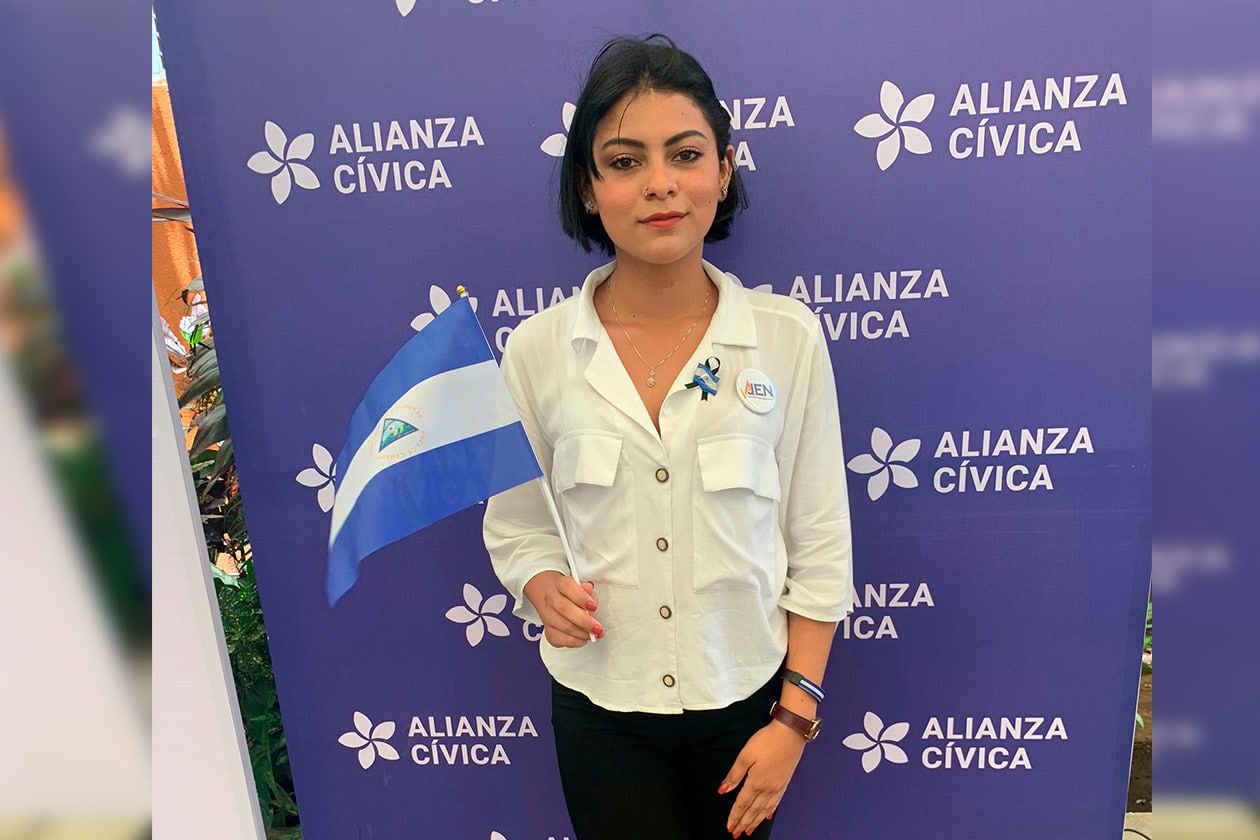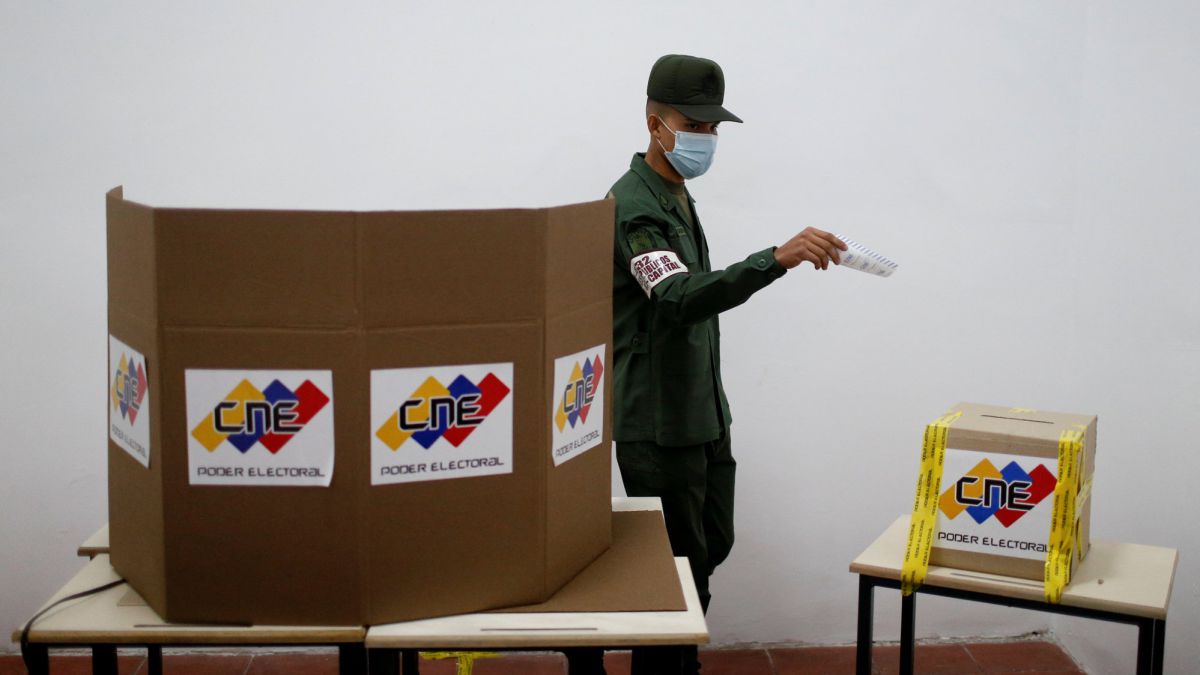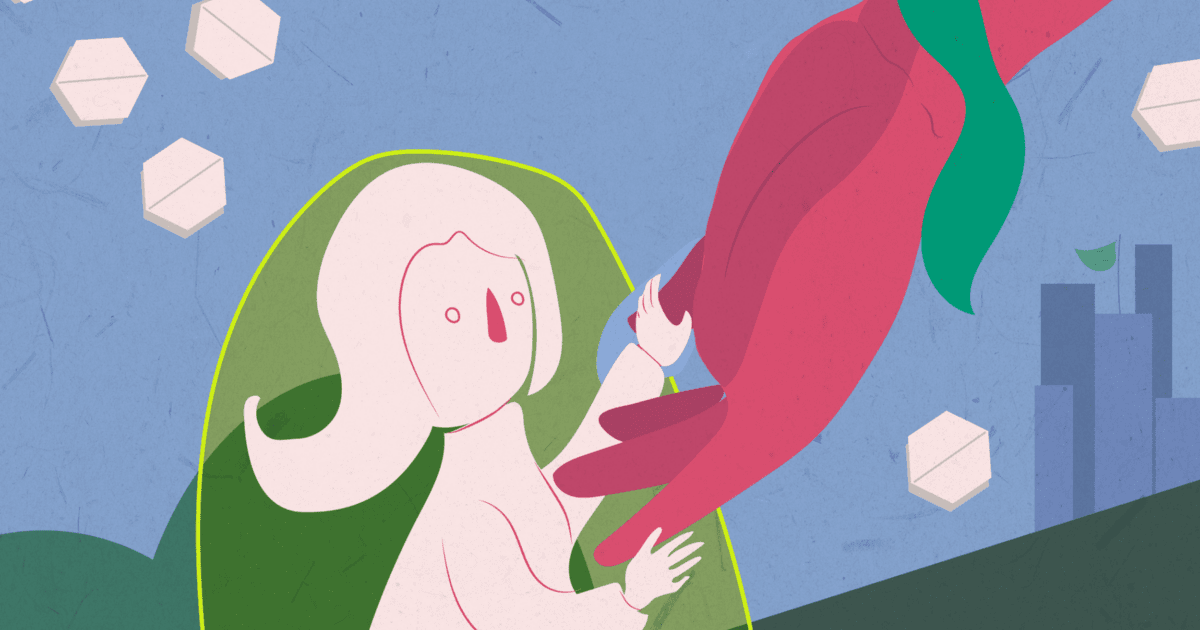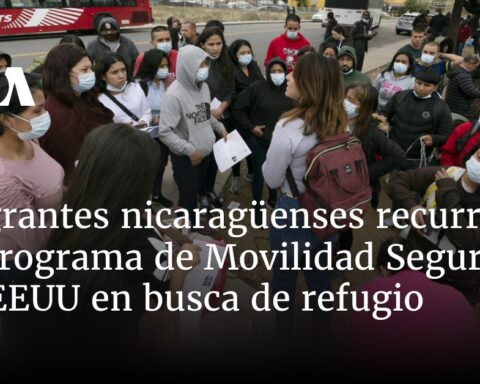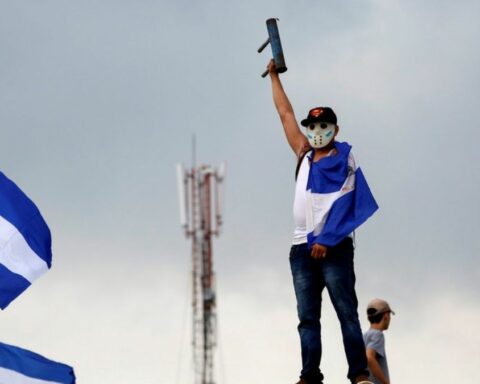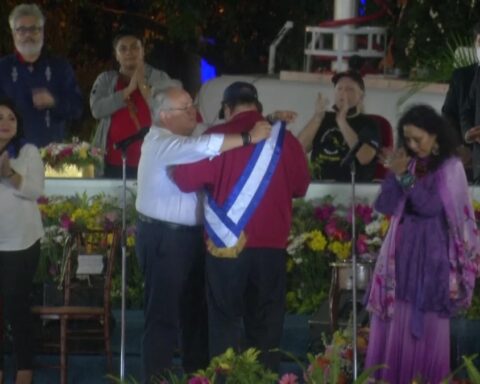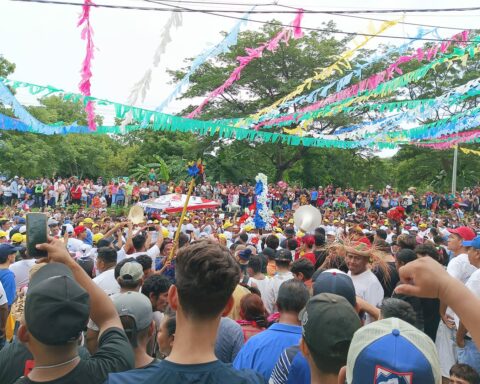In the last week, Carolina Jirón has not had a minute of calm. Most of the time he thinks about how his daughter, Cinthya Samantha Padilla Jirón, better known by her middle name and last name, will be, who was arrested two days after the elections on November 7.
Every time he leaves his house in Masaya, heading to Police Station III, in Managua, where his daughter is, he must stop in the street to catch a breath because he feels like he is drowning. She travels daily to leave breakfast and lunch for the young woman, who is one of the more than 35 opponents arrested before and after the day of the last elections, as reported by the Urnas Abiertas and Monitoring Azul y Blanco observatories.
“Sometimes I feel like I can’t take it anymore,” he says in a shattered voice.
The mother comments that she would settle for “seeing her and hearing her say: ‘I’m fine, I’m going to resist’”, as she has heard it other times in the last three years. She knows that her daughter is strong, determined and resilient. At the age of 18, Samantha became involved in the civic protests that erupted in 2018 and due to her participation in them, she was forced into exile in Costa Rica.
Against Samantha, 21, the criminal process has already begun, although the crime is not officially known. However, her mother was told that “she was detained for undermining and inciting national sovereignty.”
“She is not someone who has a heavy profile, she is not someone who is going to influence sanctions or anything. The only thing she did was post on her social networks, as 80% of Nicaraguans do, ”her mother claims.
Applied student
Samantha is the oldest of Carolina’s three children. From her childhood she showed herself to be outgoing, cheerful and very friendly. Because of that personality, her mother integrated her into projects to enhance her qualities and abilities. This is how at the age of ten he joined the psychosocial project “Los Miguelitos”, which helped children, adolescents and young people at risk.
“She was not at risk, but I put her in so that she would have something to do after school, to develop into something good. It was there that he learned to paint and draw. I remember that she was elected as a youth representative for several years, because they held elections there, ”she says.
At school she was a good student. Because of his grades, he got a scholarship to study at a private school. And in addition, in her adolescence, she was a volunteer in the Meritorious Fire Department.
When the 2018 protests erupted, she was in her fourth year of high school and like many decided to join.
“I was very strong on social media, I helped by delivering food, I attended many marches and I also helped care for the injured in Masaya. So, several people identified me. It also weighed that my boyfriend worked for the Government and since he resigned they called him a traitor, ”Samantha said in an interview with Niú magazine, in December 2019.
Exile
After participating in the protests, Samantha began to receive threats. First on social networks and then with hooded men on motorcycles, who intimidated her with burning her house. So he decided to take refuge in Costa Rica. In that country, he joined a leadership group promoted by the Arias Foundation.
“The group went to a more advanced stage and took a (leadership) course at a university here in Costa Rica. Then he was working with us on a migration project. Because of those characteristics that she had, we gave her the opportunity to work with people ”, says Claudia Vargas, a member of this Foundation.
In exile, Samantha Jirón did not lose her goal of continuing to study. So I look for an opportunity to finish high school at night. And he succeeded, in December 2019 he managed to graduate and his story became known in some national media.
“I felt that need to continue studying because I never imagined losing a (school) year due to a situation like this, nor did I ever think that I would have to leave the country to protect my life,” Samantha told Niú magazine.

Samantha is not only interested in politics. She also developed as a feminist activist. So when he decided to return to Nicaragua, due to how complicated the situation in Costa Rica became due to the pandemic, the Arias Foundation commissioned him to be the link in Nicaragua of the Women for Peace program, which seeks to make visible the machismo and micromachismo they suffer. women in political life.
“She always said that the fight was in there, that she had to return, that there were going to be elections, that there was going to be organization and that we had to be there. So he always said I’m going to be the link they have there, I’m going to come back and in the end he did, ”says Vargas from Costa Rica.
The return to Nicaragua and its political activism
Upon returning to Nicaragua, he joined the Alianza de Jóvenes y Estudiantes de Nicaragua (AJEN), with which he had already been close since he was in exile. There she was chosen as a secretary. This organization was part of the Civic Alliance for Justice and Democracy (ACJD). Later, she joined the Blue and White National Unit (UNAB).
“We returned with the hope of having political influence,” says Adonis Alemán, who was also exiled and is a member of AJEN.
Samantha studied at two universities. At the University Paulo Freire he was studying Political Science; and at American College, he began a career in Diplomacy and International Relations, but in the last few months he decided to switch to Journalism.
According to Carolina, before being arrested her daughter had decided to withdraw from politics due to the repressive context that emerged in the country. Also, “she felt a little disappointed.” So after living in safe houses for a while, he returned to his mother’s house and was looking for a job to pay for his studies.
The interview that never was
According to the known version, Samantha Jirón was captured on November 9 by plainclothes police officers when she was leaving the Holiday Inn hotel in Managua, after giving an interview to a media outlet. “When leaving the hotel, the agents pursued and stopped the vehicle (in which it was moving),” denounced the UNAB.
The next day after her arrest, her mother went to look for her at the Directorate of Judicial Aid (DAJ) and they told her that she was not there, to go look for her in District III. There they confirmed that she was detained.
“Since that day the only thing I’ve been doing is bringing her breakfast and lunch. And since I have to travel, what I do is leave him breakfast and stay there waiting for 12 o’clock. But it’s hard because once I told him ‘you have that desire to fight, but remember that when something happens to you no one is going to fight for you, only me, and that is what is happening ”, he laments through tears.
On Friday, November 12, the lawyer accompanying her case filed an appeal in favor of Samantha in court. However, they told her to arrive on Monday, that day her mother arrived at 9 in the morning and they made her wait until almost noon to tell her to come back the next day. On Tuesday, when he returned looking for an answer, he was told “we have no documentation to deliver to him.”
“I don’t know what they want, what they are finding out. The truth is that if you start looking in her life, what you will find is that she is a very hard-working young woman, that what she knows and what she has achieved has been through her effort. I honestly don’t know what harm she can do to them ”, complains her mother Carolina.

